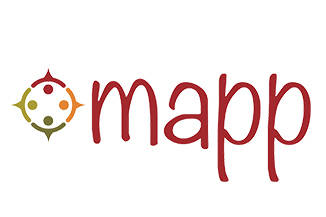By Asia Freeman
We live on Indigenous lands. These lands have been stewarded for thousands of years, since time immemorial, by the Indigenous people of this region — Dena’ina, Sugpiaq, Yup’ik, others, and the Kachemak Peoples before them. Homer is situated within the lands of Nichiłt’ana, the contemporary Ninilchik Village Tribe, stretching from Uzintun (Homer Spit) across Tikahtnu (Cook Inlet), from T’ch’anen (Caribou Hills), to lands north of Niqnalchint (Ninilchik).
Growing up in Homer, I didn’t learn this is Indigenous land. I thought this land was uninhabited before settlers came. I wasn’t taught the first, original names of these places. Kachemak Bay, I thought, was named after a Russian explorer. I recently learned the Sugpiaq people of Nanwalek and Port Graham call it Kageekmak or Qaciikmak. I hear the original name in there. Learning that Dena’ina and Sugpiaq people today have deep roots here is a process that Indigenous artists are leading today through Bunnell Street Arts Center and many places around the world. It’s a transformative process that has deepened my passion for my work as a curator and my love of this land and its people.
For Bunnell Street Arts Center, the process of resisting White supremacy within and around us is happening in tandem with the artists we present. Over the last 20 years, as artists lift up place names and stories, they are teaching us, leading us, and transforming our work, making our engagements with artists more equitable and reciprocal. This process, for Bunnell, began 20 years ago when Emily Johnson (Yup’ik Nation), who was raised in Soldotna, came here to work in residency at Bunnell Street Arts Center. Through storytelling and dance, she shared the first names of this place. Today she is an internationally recognized leader in land acknowledgment.
This summer, in land acknowledgment workshops, locals created hand-painted signs acknowledging Indigenous names and places with Artist in Residence, Melissa Shaginoff. We placed the signs at Tuggeht, “at the shore,” (Dena’ina) at Bishops Beach Gazebo. Shaginoff is the curator of exhibits for Alaska Pacific University and a rising leader in land acknowledgment across Alaska and beyond. She explained, “Indigenous knowledge of this environment created a sustainable and symbiotic relationship with the waters, plants and animals of this land. We look to Elders and youth for guidance. It is only Indigenous ways of being that will ensure our collective future.” Shaginoff is Dena’ina, from Nay’dini’aa Na Kayax, Chickaloon Village Tribe.
The goal of land acknowledgment is education, equity and healing. It is public recognition that Alaska Native people have stewarded this place for thousands of years, long before Russia claimed to discover Alaska in 1741, before Seward convinced the U.S. to purchase from Russia unceded lands called Alaska in 1867, before American settlers began naming towns and cities after themselves.
Where did the name Homer come from? Homer Pennock was a gold-digger who dreamed of shipping coal out of Homer and, through various schemes, drained his family of their fortune.
The practice of claiming to “discover” lands that have been stewarded for thousands of years by Indigenous people, of renaming places after settlers and thus suppressing and erasing original names is a strategy of White supremacy, to imply that the land was unnamed, uninhabited, free for the taking. It rests on institutions, especially those with historically White, settler leadership to acknowledge local, Indigenous land and leadership. It is an opportunity for all of us to repair and decolonize engagement with the living people and lands where we work. After all, Indigenous people are still here. Land acknowledgment is one way we can openly support systemic change for social and racial justice in Alaska and beyond.
Bunnell Street Arts Center resists colonialism by partnering with Indigenous artists and supporting Indigenous-led practices. We do this work to build cultures that take care of each other and of the land. When artists and others lead us in projects to build awareness and inclusion around land acknowledgment, it is a gift. We do this decolonizing work, as Emily Johnson says, “so that we — art workers, audiences, presenters, funders, and a broader public — can build processes and relationships forward that are equitable, justice-centered, and decolonized, rather than stay in systems and experiences that perpetuate violence and extraction.”
There’s so much work to do, and it is happening at the pace of trust. I appreciate how this process is unfolding, expanding my awareness, inviting new alliances within our widespread community, and strengthening the social fabric of Alaska.
Asia Freeman is artistic director of Bunnell Street Arts Center and adjunct faculty at Kachemak Bay Campus. She serves on MAPP’s Resilience Coalition. MAPP (Mobilizing for Action through Planning and Partnerships) is a local health improvement coalition with the vision of a proactive, resilient and innovative community.

